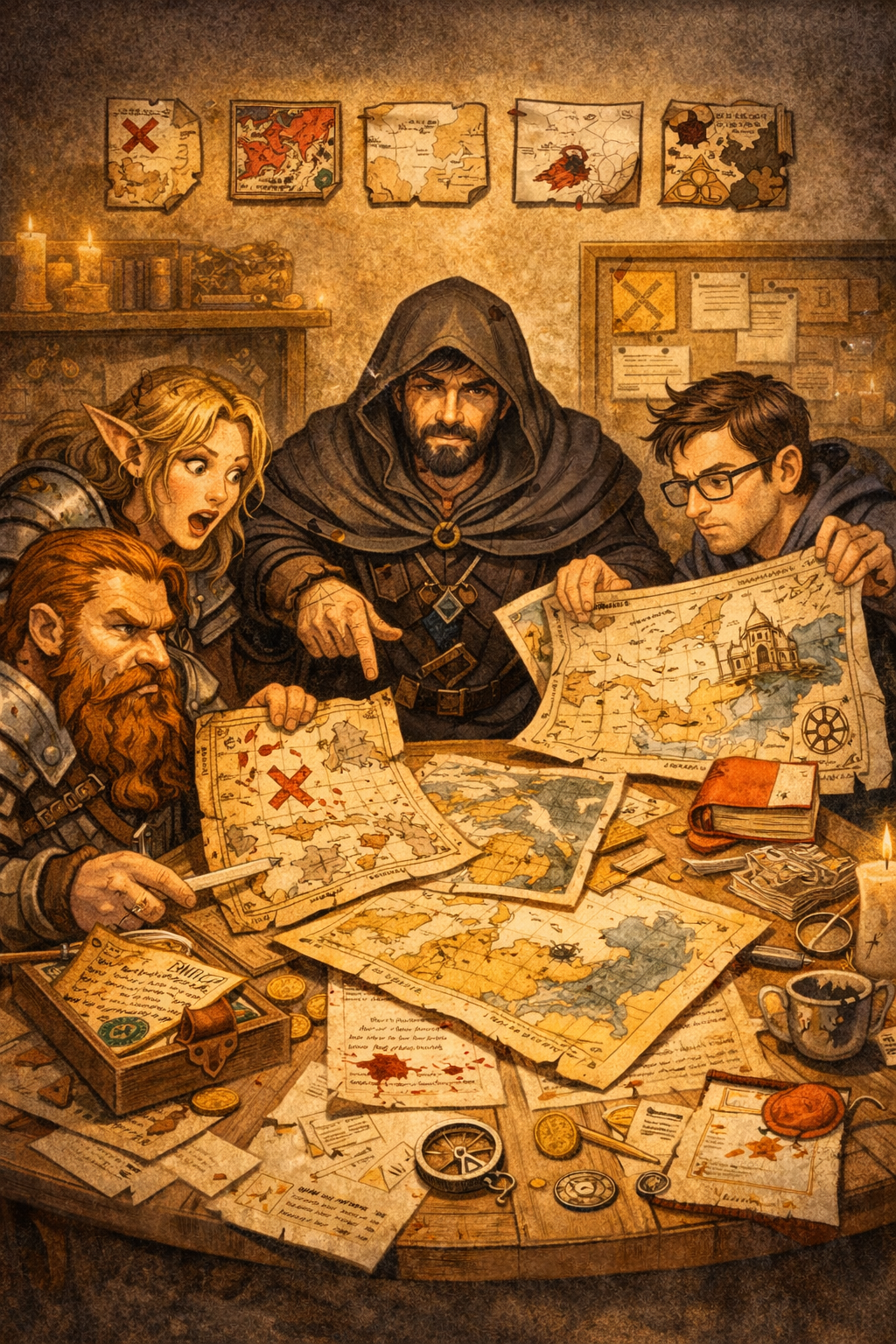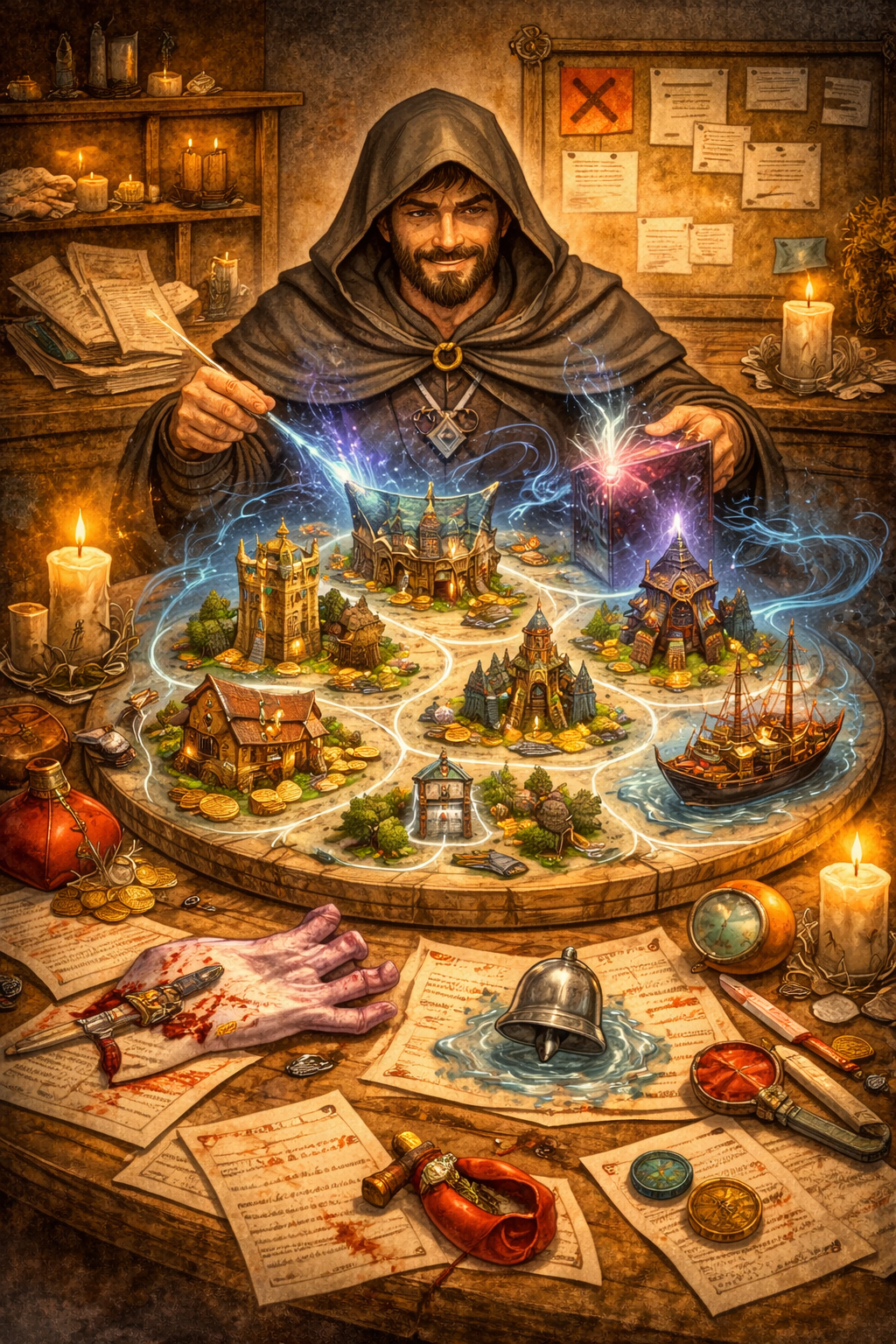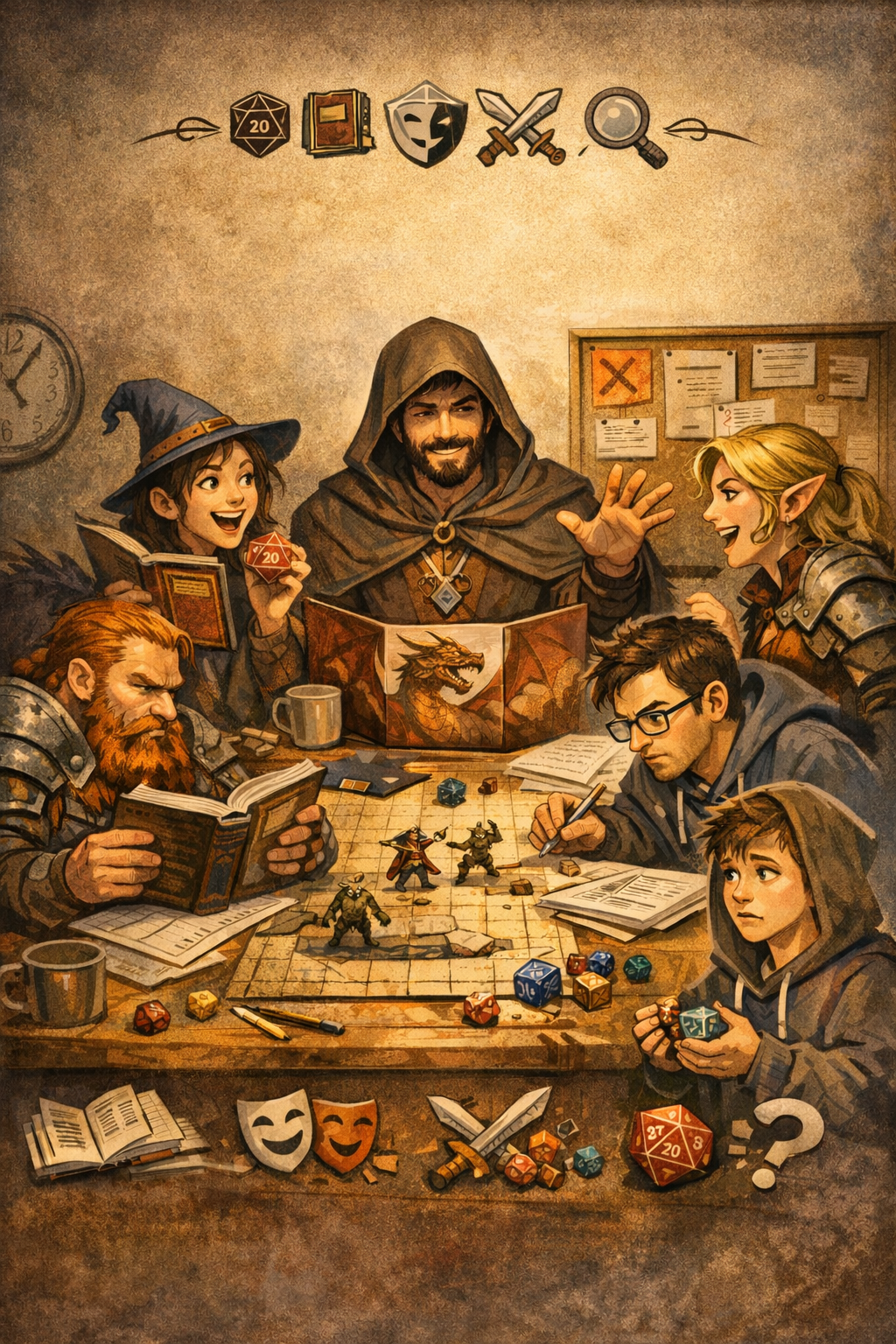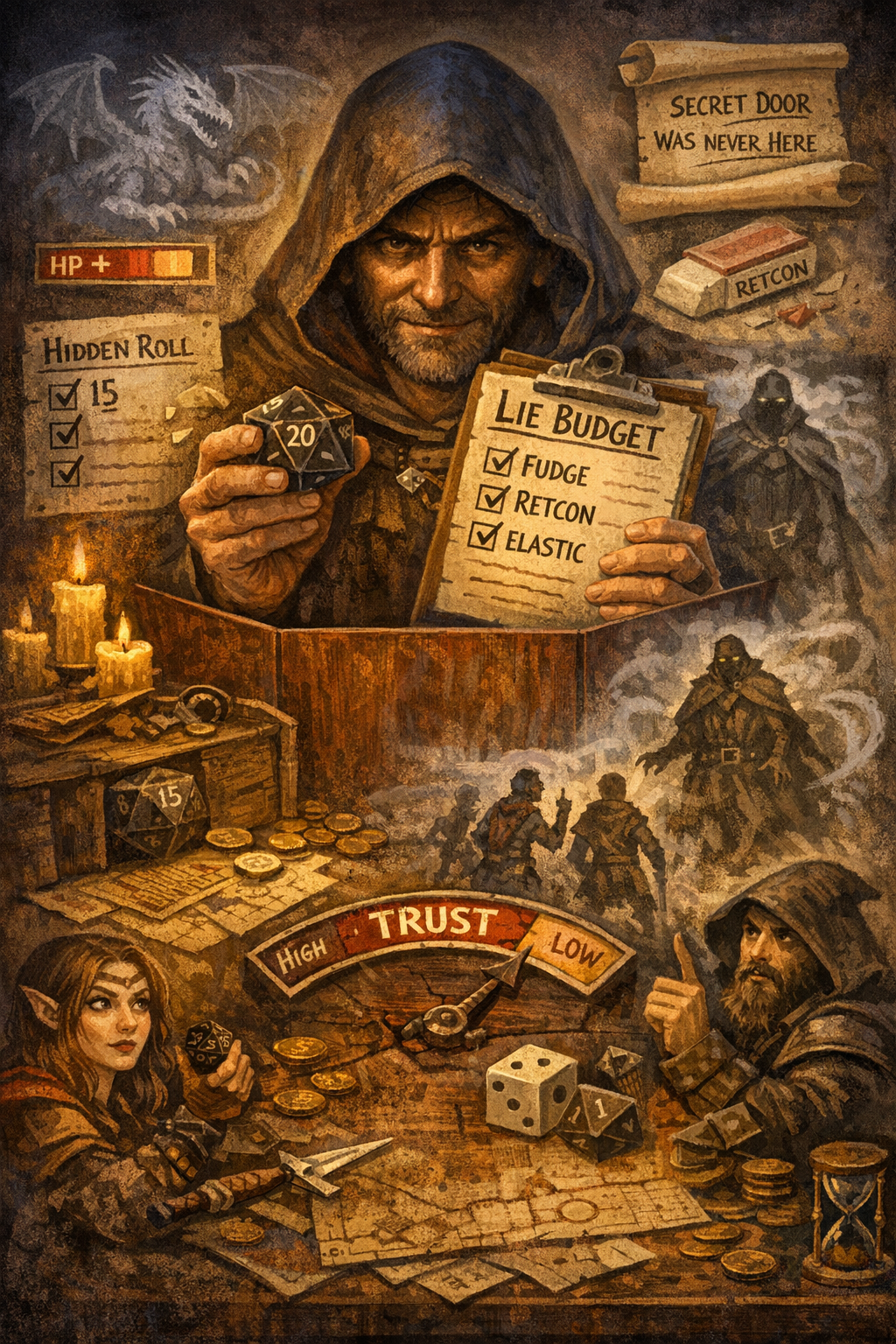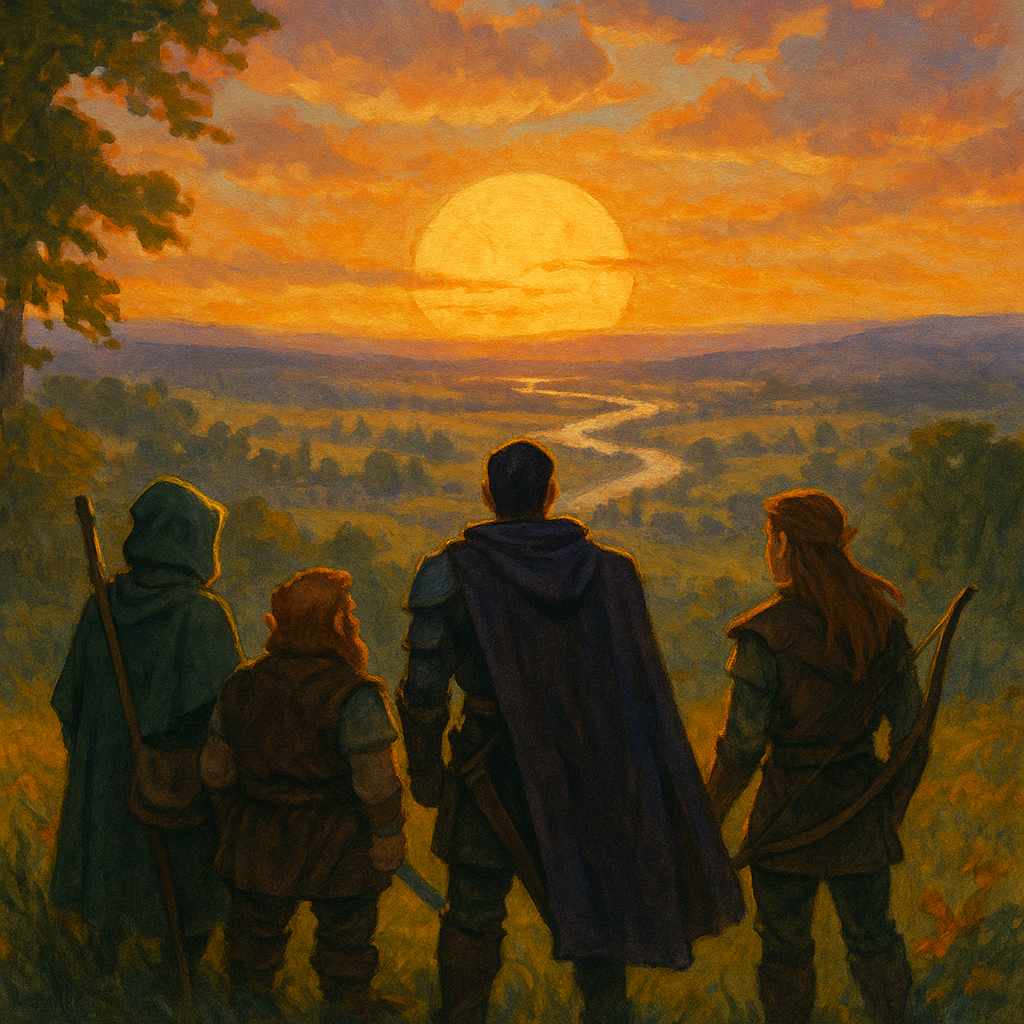DMing/GMing With Disabilities: Accessability Tools and Tips for Inclusive Games
Things can be a little rough for a DM/GM in my position
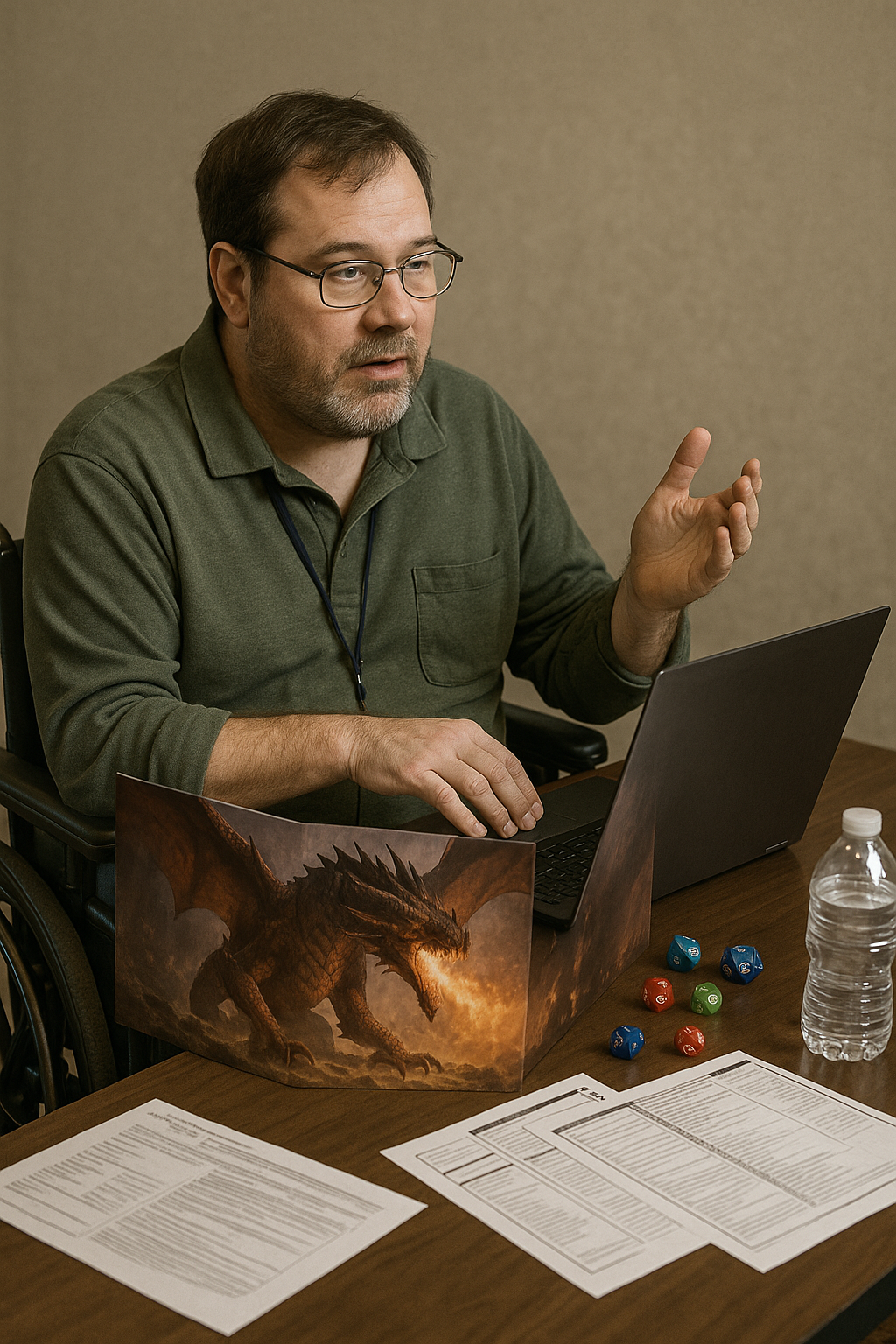
Dear Readers,
As many of you know, I live with Multiple Sclerosis—a condition that brings its own set of daily challenges, uncertainties, and limitations. But if there’s one truth I’ve discovered on this journey, it’s this: the imagination knows no bounds. Being disabled hasn’t stopped me from running compelling, exciting, and heartfelt Dungeons & Dragons games—it’s made me more thoughtful, more adaptive, and more inclusive as a Dungeon Master (DM). And I’m not alone.
Today’s post is deeply personal and long overdue. It’s about DMing with disabilities—whether you're the one navigating health challenges or striving to create a table where disabled players feel seen, supported, and empowered. We’ll explore real tools, practical tips, and design philosophies that center accessibility without compromising the magic of collaborative storytelling.
Whether you're living with a chronic illness, neurodivergent, dealing with mobility or sensory impairments, or just want to run a table where everyone is welcome, this blog post is for you.
Why Accessibility in TTRPGs Matters
Dungeons & Dragons is a game of limitless worlds and endless possibilities—but only if everyone gets to play. When disabled DMs and players are excluded, ignored, or unsupported, we all lose a piece of the beautiful tapestry that makes this hobby so special.
By incorporating accessibility into your DM toolkit, you’re not just making accommodations—you’re actively enriching your worldbuilding, deepening the roleplay, and fostering true collaboration at the table.
And if you, like me, are a disabled DM, I want to start by saying: you are not alone. You are absolutely capable. And you deserve tools, techniques, and communities that support your creativity and passion.
Part One: DMing With Disabilities – My Story With MS
Living with Multiple Sclerosis means fatigue, cognitive fog, pain, and fluctuating symptoms that often don’t follow a schedule. Some days I’m full of energy and ideas. Other days, I can barely sit upright long enough to run an hour-long session.
Early on, I felt pressure to "power through"—to perform my role as DM without revealing what I was enduring behind the screen. But over time, I learned that vulnerability was not weakness—it was a bridge. By communicating openly, planning smartly, and allowing myself to be flexible, I found my way not only back to the table—but deeper into the heart of the game.
That journey taught me an important truth: we adapt, we don't give up.
Part Two: Practical Tips for Disabled DMs
Let’s dig into the real meat of it: what can you do to make DMing work for you if you’re disabled? Here are some approaches that have worked for me and countless others:
1. Session Planning in Chunks
When brain fog hits, the idea of planning a whole session feels impossible. Break it down:
- 10 minutes to outline three key beats
- 10 minutes to create a few NPC notes
- 10 minutes to prep stat blocks or maps
Use timers or voice memos to help structure short prep bursts. Tools like Notion, OneNote, and Google Docs can sync across devices so you can jot ideas from bed, your phone, or even via speech-to-text.
2. Session Zero With Accessibility in Mind
Don’t be afraid to set expectations:
- Let your players know you may need breaks.
- Ask for flexibility around rescheduling if you have flare-ups.
- Use a questionnaire to ask players about their accessibility needs too.
Normalize disability as part of the group dynamic, not an inconvenience.
3. Game-Length Adjustments
Standard four-hour sessions? Not always realistic. Try:
- 1.5 to 2 hour sessions
- Monthly or biweekly cadence
- Pausing combat mid-round if you’re too fatigued to continue
There’s no "official" session length—do what works for your energy and focus.
4. Use Assistive Tech & Tools
Let the robots help!
- Speech-to-text for note-taking or narration
- Screen readers and color filters
- Virtual tabletops with click-to-roll and automation (Foundry VTT, Roll20, Owlbear Rodeo)
- AI-generated NPCs or descriptions (use with care and customization!)
Tech doesn’t replace creativity—it enhances your capacity.
5. Prewritten Modules Are Not Cheating
Running a module isn’t lazy—it’s smart. It gives you scaffolding so your energy goes toward the moments that matter.
Customize what you want. Ignore what you don’t. And if a combat seems too long or complex, skip to the outcome.
6. Make Combat Work for You
Combat can be the most draining part of DMing, especially with MS fatigue. Some options:
- Fewer enemies with more unique traits
- Theatre-of-the-mind when maps are too much
- Declare monster tactics clearly ahead of time
- Use spell cards or cheat sheets
- Let players help run initiative or rules
You are still the DM if you let others track initiative or HP for you. Delegation = empowerment.
7. Session Templates and Prep Sheets
Create templates for towns, NPCs, or dungeon rooms. Having a go-to format can save a lot of effort.
Example:
- Name / Voice / Quirk
- What they want
- How they can help or hinder the party
Create a blank version in your DM notebook or app and reuse!
8. Narrative Control as a Coping Tool
Use in-world justifications for breaks:
- A time bubble slows things
- A mysterious sleep overcomes the party
- The god of rest intervenes (with a wink)
Your players will love the creativity and appreciate the honesty.
Part Three: Creating Inclusive Games for Disabled Players
Even if you’re not disabled, you can still create a welcoming space for players with disabilities. And if you are disabled, you’re in a great position to lead by example.
1. Ask About Accessibility From Day One
Include a section in your Session Zero for accessibility. Ask questions like:
- Do you prefer text or voice communication?
- Do you need visual or sensory adjustments?
- Would you benefit from prewritten character sheets?
- Are you OK with surprise sounds or jump scares?
Normalize the discussion and listen with compassion.
2. Use Accessible Language and Descriptions
Not everyone visualizes the world the same way. Some players rely more on audio cues, others on narrative clarity.
Tips:
- Use multiple senses in descriptions: sight, sound, touch, smell
- Avoid relying solely on visual cues for clues or puzzles
- Offer handouts in plain-text or screen reader-friendly formats
3. Represent Disability in the World
Include disabled NPCs—not as inspirational tokens, but as real, competent people:
- A blind diviner who sees with magic
- A goblin war veteran with a prosthetic arm
- A necromancer who uses a cane made from bone and charm
- Use/Allow characters to have the famous "Combat Wheelchair" (believe it or not, I have a player playing a character that has to use a wheelchair and this is the character's every day!)
Show that adventuring is for everyone, with or without accommodations.
4. Pacing and Pauses
Build in breathing room:
- Let players take breaks as needed
- Check in frequently with "Are we good to continue?"
- Use "X/N/O" cards or digital equivalents to allow nonverbal communication about comfort levels
5. Offer Alternatives to Complex Mechanics
Combat, puzzles, and social challenges can be hard for players with cognitive or mobility limitations.
Offer options:
- Allow players to summarize what their character attempts instead of reading full rules
- Offer choices instead of open-ended questions
- Use simplified puzzles with clear logic steps
If a player wants to roll with flavor, support that! Mechanics can be flexible.
6. Normalize Disabled Characters
Let players bring their own experience to the table. If a player wants their character to have a chronic condition, talk about how that affects gameplay—in empowering ways.
Avoid the trope of disability as a punishment or burden. Focus instead on:
- Community support
- Magical accessibility (hover-chairs, spell-enhanced hearing aids)
- Cultural narratives around disability
Let fantasy worlds evolve, too.
Part Four: Emotional Realism and Disability in Roleplay
As disabled players and DMs, our lived experiences bring profound emotional depth to the table. We understand perseverance, fear, isolation, and resilience in intimate ways. Use that.
When my MS flares up, I often play NPCs who are coping with change—an ex-knight turned historian, a cursed bard seeking new purpose. These characters aren’t metaphors. They’re expressions.
You don’t have to create a character defined by disability—but don’t shy away from letting that inform their journey.
Some powerful themes to explore:
- What does healing mean when cure spells don’t fix everything?
- How does a hero adapt when their strength wanes?
- What kind of magic aids function, not aesthetics?
Roleplaying through pain doesn’t have to be sad—it can be triumphant.
Part Five: Community, Connection, and Support
I wouldn’t be DMing today if it weren’t for the incredible community of disabled players and DMs online. If you’re looking for support, inspiration, or just someone who gets it, check out these spaces:
- Disabled & Dragons (Twitter, Discord): Advocacy and discussion
- Dungeons & Disabled (Podcast): Insightful takes from disabled TTRPG fans
- The Tabletop Accessibility Project: A growing repository of tools and stories
Also: talk to your group. Be honest. Let them support you. This game is about togetherness.
Final Thoughts: You Belong Here
Whether you’re a disabled DM like me, a chronically ill player finding your rhythm, or an abled ally building a more inclusive table—know this:
You belong at the table. Your stories matter. Your way of playing is valid.
TTRPGs are not about perfection. They’re about connection. And the most powerful campaigns I’ve ever played weren’t about slaying dragons—they were about understanding each other.
Let your game reflect that truth.
Until next time, Dear Readers...
















